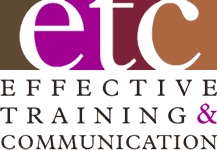Let’s begin the New Year by continuing to look at contemporary grammar as it affects what you write or what you say in the workplace. Here are two more Best Practices for your Workplace Communicator Tool Kits … and we can have some fun discussing them.
Prepositions
Remember how many points you lost on those high school term papers because you ended sentences with prepositions? Sister Mary Apostrophe nailed you with her ruler for such offenses. Me too. Maybe it was wrong in those days … but not any more. In the contemporary workplace, it’s fine to end a sentence with a preposition. We talk that way so we should write like we talk.
Doesn’t’ ‘Whom do you want to work with?’ sound more down-to-earth and conversational than ‘With whom do you want to work?’ I think so, too. And using ‘Who’ makes it even more conversational, even though ‘Whom’ is more grammatically correct. So, whom cares?
Despite this logic, you may still feel uncomfortable, unprofessional or even sinful using ‘Who do you want to work with?’ I understand. But, here’s a simple solution that you should be able to live with. Simply put a word between the preposition and the punctuation mark and it changes everything. ‘Who do you want to work with, Bob?’ or ‘Who do you want to work with tomorrow?’ should sound like a real person and keep you out of grammar purgatory.
Contractions
They’re acceptable in contemporary workplace writing and speaking. We use contractions all the time – they’re less formal and stuffy. So, nothing wrong with saying or writing ‘We’ll launch the project on 2/1’ rather than ‘We will launch the project on 2/1’.
Or ‘Don’t forget that the new security procedures go into effect Monday.’ Now, if you really truly believe that saying ‘Do not’ is more forceful or serious than ‘Don’t’, fine with me. It isn’t, but you have to do what you’re comfortable with. Or would you prefer … you have to do that with which you are comfortable
One caution – if you use contractions, use them consistently. Don’t say ‘don’t’ in one sentence and ‘do not’ in the next. Such inconsistencies usually suggest that one of them is a mistake.
So, two more grammatical strategies for your growing Tool Kits. Remember that it’s OK using contractions in workplace writing and ending sentences with prepositions, if that’s something you’re comfortable with. Works for me.

